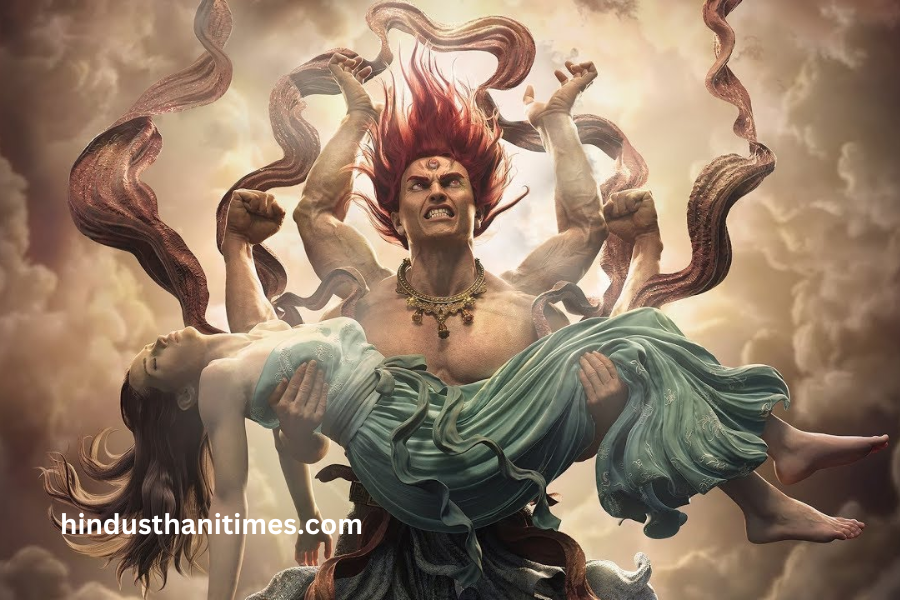Throughout human history, gods have played a significant role in shaping cultures and societies. These powerful deities have been revered, feared, and worshipped by people from various civilizations around the world. In this article, we will explore the top 10 most powerful gods in the world, each representing different aspects of life and possessing immense influence over their respective domains.
Criteria for Determining the Power of Gods
Determining the power of gods is a complex task, as it varies across different mythologies and belief systems. However, there are common criteria that can be used to evaluate their power. Firstly, the scope of their influence, such as their control over natural forces, creation, or specific aspects of human life. Secondly, the level of devotion and worship they inspire in their followers. Lastly, the tales and myths surrounding their feats and accomplishments also contribute to their perceived power.
The Hindu God Vishnu: The Preserver of the Universe
In Hindu mythology, Vishnu is considered one of the most powerful gods. As the preserver of the universe, he ensures the balance of good and evil, and the preservation of cosmic order. Vishnu is often depicted with four arms, each holding a symbolic item representing his divine attributes.
He is believed to have incarnated on Earth several times to restore righteousness and protect humanity from evil forces. The devotion towards Vishnu is evident in the millions of followers who worship him as the supreme deity.
The Egyptian God Ra: The Sun God and Creator of Life
Ra, the sun god, holds immense power and significance in Egyptian mythology. As the creator of life, he is believed to have brought light and warmth to the world. Ra is often depicted as a falcon-headed deity or a man with the sun disk on his head.
Egyptians worshipped Ra as the king of all gods, believing that he controlled the sun’s movement across the sky. The power of Ra is evident in the great pyramids and temples built in his honor, showcasing the deep reverence ancient Egyptians held for this mighty god.
The Greek God Zeus: The King of the Gods and Ruler of Mount Olympus
In Greek mythology, Zeus reigns supreme as the king of all gods and ruler of Mount Olympus. With his thunderbolt in hand, Zeus wields immense power and authority. He is revered as the god of the sky, thunder, and lightning.
Zeus’ power extends beyond the realm of gods, as he is also known for his influence over mortals. As the father of many famous demigods and heroes, his actions often shape the course of human history. The awe-inspiring tales of Zeus’ exploits continue to captivate audiences even to this day.
The Norse god Odin: The allfather and god of knowledge and wisdom
Odin, the allfather of Norse mythology, is a god of great power and wisdom. As the ruler of Asgard, the realm of gods, he possesses immense knowledge and insight. Odin is often depicted as an elderly man with a long beard, wearing a wide-brimmed hat and carrying a spear.
He is known as the god of war, poetry, and wisdom. Odin’s relentless pursuit of knowledge, including sacrificing one of his eyes to gain wisdom, showcases his unwavering dedication to understanding the mysteries of the universe.
The Mayan God Kukulkan: The Feathered Serpent and God of Wind and Wisdom
Kukulkan, the feathered serpent, holds a prominent place in Mayan mythology. As the god of wind and wisdom, he is associated with knowledge, learning, and the arts. Kukulkan is often depicted as a feathered serpent, symbolizing the combination of earth and sky.
The Mayans revered Kukulkan as a benevolent deity, believed to bring prosperity and enlightenment to their civilization. The ancient temples dedicated to Kukulkan, such as the pyramid at Chichen Itza, stand as a testament to his enduring power and influence.
The Japanese God Amaterasu: The Sun Goddess and Bringer of Light
Amaterasu, the sun goddess, occupies a central role in Japanese mythology. As the bringer of light and the ruler of the heavens, she is considered one of the most powerful gods in Japan.
Amaterasu is believed to have descended from the heavens to establish the imperial lineage of Japan. She is often associated with fertility, agriculture, and the well-being of the nation. The reverence for Amaterasu is deeply ingrained in Japanese culture, as she is considered the ancestral deity of the Imperial family.
The Aztec God Quetzalcoatl: The Plumed Serpent and God of Knowledge and Creation
Quetzalcoatl, the plumed serpent, is a powerful god in Aztec mythology. He is revered as the god of knowledge, creation, and fertility. Quetzalcoatl is often depicted as a feathered serpent, symbolizing his connection to the earth and the heavens.
The Aztecs believed that Quetzalcoatl played a crucial role in creating the world and shaping human destiny. His influence extended to various domains, including agriculture, arts, and the calendar. The legacy of Quetzalcoatl lives on in the rich mythology and art of the Aztec civilization.
The Celtic God Morrigan: The Goddess of War and Fate
Morrigan, the Celtic goddess of war and fate, embodies the power and unpredictability of battle. She is often depicted as a crow or a raven, symbolizing her association with death and battlefields. Morrigan’s influence extends beyond warfare, as she is also associated with sovereignty and prophecy.
The ancient Celts believed that Morrigan held the power to shape the outcome of battles and determine the fate of warriors. Her enigmatic nature and role in Celtic mythology make her one of the most powerful and intriguing gods of the ancient world.
The African God Olorun: The Supreme God and Creator of the Universe
Olorun, the supreme god in Yoruba mythology, holds the title of the creator of the universe. He is believed to have brought order to chaos and established the foundations of existence. Olorun is often depicted as a powerful deity residing in the heavens, overseeing the affairs of the world.
He is associated with the sun, the sky, and the forces of nature. The worship of Olorun is deeply rooted in African culture, as he is seen as the ultimate source of power and the embodiment of divine authority.
Conclusion
The top 10 powerful gods explored in this article demonstrate the enduring power and influence of deities across different cultures and mythologies. From Vishnu’s preservation of the universe to Olorun’s creation of the cosmos, these gods have shaped the beliefs, traditions, and values of civilizations throughout history. Whether they represent natural forces, wisdom, or the mysteries of life and death, these gods continue to captivate our imagination and inspire awe. By studying and appreciating these powerful gods, we gain insight into the diverse tapestry of human spirituality and the enduring quest for meaning.



